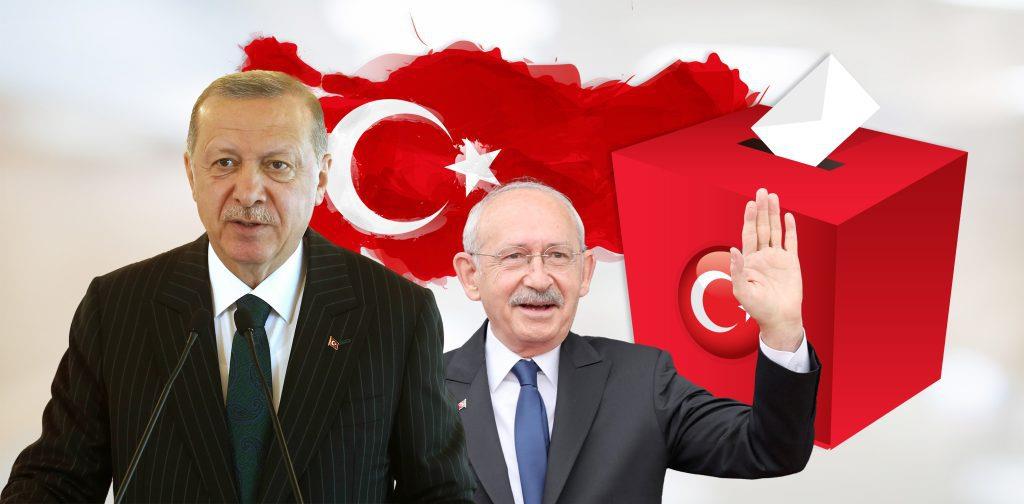(MENAFN- Daily News Egypt) The Turkish run-off presidential election between incumbent President Recep Tayyip Erdogan and Kemal Kılıçdaroğlu will be held on Sunday 28 May.
In the first round of voting on 14 May, Erdogan received 49.5% of votes, just short of the majority needed to avoid a run-off.
Kılıçdaroğlu, candidate of the six-party opposition alliance, won 44.9%, while Sinan Oğan finished third with 5.2%.
The result confounded the expectations of pollsters who put Kilicdaroglu ahead.
This week, Erdogan won the backing of nationalist hardliner Sinan Ogan, sharpening Kilicdaroglu's challenge in the run-off.
In the parliamentary vote on 14 May, support for Erdogan's AKP fell by seven points from the 42.6% it won in the 2018 elections, but with its coalition enjoying a parliamentary majority, he called on voters to support him in order to ensure political stability.
Kilicdaroglu is the main opposition candidate and head of the Republican People's Party (CHP), founded by Mustafa Kemal Atatürk – the founder of modern Turkey.
Kılıçdaroğlu offered voters a comprehensive platform and promised to reset democracy, including a return to a parliamentary system of government and the independence of the judiciary, which critics say Erdogan has used to suppress dissent.
“However, since 14 May, his speech has taken a hard-line turn as he reached out to nationalist voters in his bid to defeat Erdogan, vowing to return millions of refugees.”
Turkey's pro-Kurdish parties reaffirmed their support for Kılıçdaroğlu in the run-off without naming him, a day after he expressed anger at a deal he reached with the far-right, anti-immigration party Victory.
Voicing his party's support for Kilicdaroglu on Wednesday in a possible push for the CHP leader, in the face of the impact of Erdogan's support, Nasr secured 2.2 percent of the vote in the parliamentary elections.
Erdogan's critics say his government has muzzled opposition, undermined rights and placed the judicial system under its influence, which officials deny.
The Turkish economy is in focus, and economists say that it was Erdogan's unconventional policy of low interest rates despite high prices that drove inflation to 85% last year, and the lira to a tenth of its value against the dollar over the past decade.
Kilicdaroglu pledged to return to more conventional economic policy and restore the independence of Turkey's central bank.
In foreign affairs, under Erdogan, Turkey has flexed its military might in the Middle East and beyond, established closer ties with Russia, and seen relations with the European Union and the United States increasingly strained.
Turkey and the United Nations brokered an agreement between Moscow and Kiev for Ukrainian wheat exports,
More than 64 million Turks are eligible to vote at nearly 192,000 polling stations, including more than 6 million first-time voters on 14 May. There are 3.4 million overseas voters who voted from 20 to 24 May.
Polling stations in Turkey open at 8 am (05:00 GMT) and close at 5 pm (14:00 GMT) on 28 May, with the sale of alcohol banned on election day.
Voter turnout in the Turkish elections is generally high: on 14 May, voter turnout was 87.04%, with 88.9% in Turkey and 49.4% abroad.




















Comments
No comment